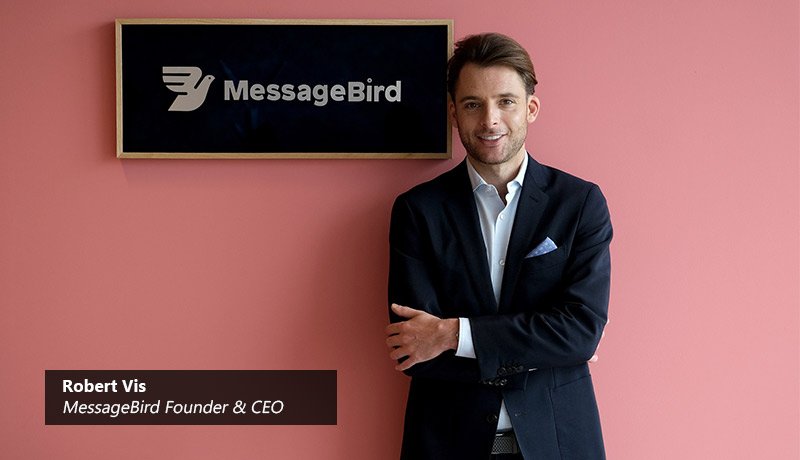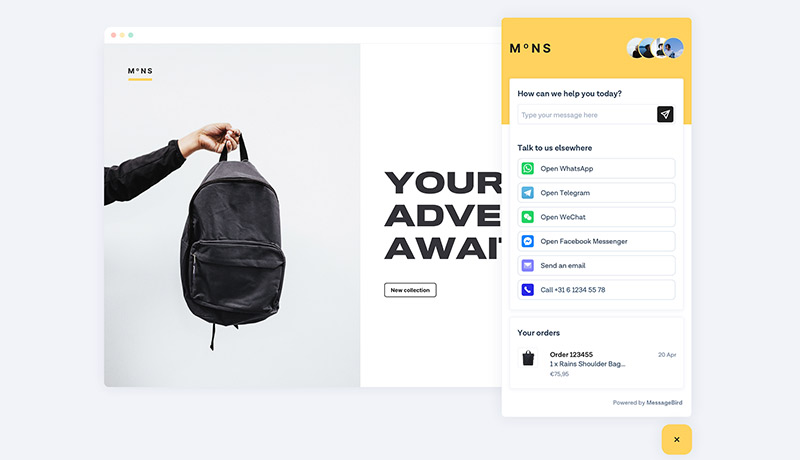22 December 2024, Sun |
10:39 AM

MessageBird announced the closing of a new $200M Series C round. In the Middle East, MessageBird is increasingly popular and is used by their clients such as Careem, Etisalat and OkaDoc to power customer communications.
The funding will be used to triple the size of MessageBird’s global team and further expand into its core markets in Europe, Middle East and Asia and Latin America, as the company officially launches a “Work from Anywhere” policy.
UAE and Egypt are key markets for MessageBird in the Middle East.
This latest investment, raised remotely during lockdown, comes on the back of a global surge in demand for a wider range of messaging-first customer communication tools, across a much broader range of channels, as global businesses struggle to cope with the pivot from physical in-store and call centre-based customer service to a fully remote workforce and online only sales. This accelerated MessageBird’s evolution from a purely Communications Platform as a Service (CPaaS) company to the world’s first and only Omnichannel Platform as a Service (OPaaS) company.
“I just want to live in a world where I can text with a business and never get stuck waiting on hold again. MessageBird has pioneered OPaaS (Omnichannel Platform as a Service) based on the idea that global companies should have zero-friction communication with their customers anywhere in the world and on any channel they prefer,” said Robert Vis, MessageBird Founder & CEO. “This latest round is validation that there is pent up demand from customers all over the world who also want traditional businesses to move into this brave new messaging-first omnichannel world and we have the leading product on the market to help them do just that.”
The investment round was led by Silicon Valley’s Spark Capital at a $3B valuation with participation from Bonnier, Glynn Capital, LGT Lightstone, Longbow, Mousse Partners and New View Capital. As part of this latest investment Spark Capital General Partner Will Reed will join MessageBird’s board. Existing investors Accel, Atomico, and Y-Combinator also participated in this round.
“As consumers increasingly demand that businesses talk to them in the apps that they prefer, businesses are finally being forced to adopt omnichannel strategies at scale,” said Will Reed, General Partner at Spark Capital. “Robert and the MessageBird team have built the best platform to engage any customer on any channel, globally – along with a suite of software products that enhance and automate these interactions – enabling businesses to stand out in the new messaging-first world.”

A true omnichannel experience is about shifting customer engagement away from the inefficient channels of email and voice to more dynamic messaging channels. That requires products for both businesses and consumers to complete the circle of having unified context around every interaction. This is now possible thanks to MessageBird’s suite of products including:
Inbox – Free omnichannel customer support and engagement, Inbox enables businesses anywhere in the world to communicate and share rich media with any customer instantly across WhatsApp, SMS, Voice, Messenger, WeChat, Google Business Messaging, Line and Telegram. Incoming messages across every channel grouped into a single customer thread for easy ticketing and response
Omnichannel Chat Widget – turns static pages into dynamic conversations, enabling customers to communicate with your teams on your homepage, in your app, on live chat or any messaging service (WhatsApp, Messenger, WeChat, SMS, and more)
Flow Builder – An RPA platform for business messaging, Flow Builder enables any business to also build bespoke omnichannel experiences
One third of Messagebird’s 15,000 global customers have now transitioned to using omnichannel cloud communications via their Flowbuilder, Inbox or Omnichannel Widget products. MessageBird is trusted by brands such as Lufthansa Airlines, Heineken, Hugo Boss, Rituals Cosmetics and SAP, as well rapidly-growing disruptors such as Uber, Glovo, HelloFresh, and Deliveroo.